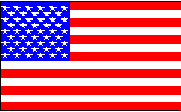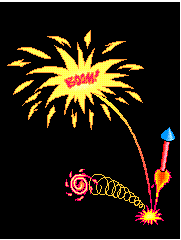 14th Sunday of Ordinary Time
14th Sunday of Ordinary Time
 14th Sunday of Ordinary Time
14th Sunday of Ordinary Time
July 4, 1999
Independence from the Culture of Death Day
Readings: Zech 9:9-10 -- Romans 8:9,11-13 -- Matthew 11:25-30
HOME . . . JUSTPEACE FRONT PAGE
What tremendous readings to reflect upon this Sunday, especially for those of us who live in the
United States and also celebrate our national holiday, Independence Day. This is a day to notice
signs of contradiction.
Zechariah gives us a primary text of Palm Sunday, the first of today's signs of contradiction.. In
those days, as in our own, rulers moved about with great pomp and ceremony. Yet, the Messiah,
to whom all nations are subject, the Creator of all worlds, comes not with pomp and ceremony,
but rather with humility, docility even, riding upon a donkey. Is there a lesson here?
Paul gives us strong words on the culture of life versus the culture of death, which finds its origin
in the human choice to live in the Spirit or to live in death. Verse 6, which isn't in the Sunday
reading, but is essential to a full understanding of the passage, reads, "The concern of the flesh is
death, but the concern of the spirit is life and peace. Yes it's true, there is death within us, but
there is also life, and the power of the Risen Christ breaks through all death leading us into new
life in the Spirit. This Spirit of the Lord is with us right now, where we are on Planet Earth, third
rock from the Sun. It's not just a theological concept, it is a lived reality. Do we understand this
and experience it?
Matthew gives us a third sign of contradiction. "Come to me all you who labor and are
burdened, and I will give you rest. . . My yoke is easy, and my burden is light." What words
these are to be heard by millions of citizens of the United States this 14th Sunday of Ordinary
Time, our Independence Day!
Who can count the burdens that We the People of these United States have laid upon the world!
Bombs and rockets and embargoes, we have financed both sides of too many conflicts and killed
too many children. When it suits our purposes, we remember the promises of our ancestors of
justice and freedom, but if it is a question of our devotion to the Gods of the Marketplace, how
soon we forget. We are making profits -- and paying dividends -- stolen from the rice bowls of
the poorest of the poor on every continent. People are spending those dividends with a clear
conscience, they buy their children clothes that proudly carry the Nazi swastikas of the Nineties:
Gap, Nike, Abercrombie and Fitch, Old Navy. We teach our children to kill their children, and
then we wonder why our kids are killing each other. We piously declaim in favor of family
values, while systematically excluding millions of people from full participation in the economic
life of our community. We then lecture the poor on "personal responsibility" while shaking
down the taxpayers for another corporate welfare program and launching cruise missiles at
demonized foreign foes.
Sure, times are great if you're in the right place at the right time in this globalized economy. By
all accounts, the top 20% here in the United States are doing excellent, the top 5% are making
out like Fat Rat -- and the other 80% are losing ground. Lifestyle crashes have been avoided by
adding a second (or third) income to household accounts, by working a lot more hours, and by
going deeply into debt. But these demographic changes have their own hidden costs that
typically aren't booked in our accounting ledgers. Were the peasants of Russia better off because
Potemkin built cute little movie-facade-style villages to conceal the miserable lot of the serfs
from Catherine the Great? Can a business survive if it ignores significant costs and refuses to
take responsibility for them? Is sticking our collective heads in the sand really a useful response
to the signs of these times? Should we believe what we see on the TV?
There is plunder and conquest in our history, and this we share with the rest of the human
community. There is also justice and freedom, fairness and honor, respect and creativity. In this,
we model the three signs of contradiction given us by Paul, Matthew, and Zechariah in today's
readings.
 I'm finding a lot of importance these days in
the Little Way. We live in the midst of such
overwhelming events, we have so much
information available to us, it is hard to even
begin to think about how we work our way
out of the present situation into something
better. Margins are stretched thin and to the
breaking point the world over. When it gets
to the point that there is danger in adding any
more straws to the back of the camel, perhaps
it is a time that we should start removing
some of the load the poor camel is having to carry. While the poor starve, the rich throw crumbs,
a shabby response to a world in need. Let us remember to do the rich an eternal favor and call
them to repentance for their sins. Jesus said it would be hard for them to enter the Kingdom of
God, which suggests they will always be greatly in need of evangelism and catechesis. In fact,
now would be a good time to call for peace talks in the war of the rich on the poor.
I'm finding a lot of importance these days in
the Little Way. We live in the midst of such
overwhelming events, we have so much
information available to us, it is hard to even
begin to think about how we work our way
out of the present situation into something
better. Margins are stretched thin and to the
breaking point the world over. When it gets
to the point that there is danger in adding any
more straws to the back of the camel, perhaps
it is a time that we should start removing
some of the load the poor camel is having to carry. While the poor starve, the rich throw crumbs,
a shabby response to a world in need. Let us remember to do the rich an eternal favor and call
them to repentance for their sins. Jesus said it would be hard for them to enter the Kingdom of
God, which suggests they will always be greatly in need of evangelism and catechesis. In fact,
now would be a good time to call for peace talks in the war of the rich on the poor.
In ancient Israel, the year of Jubilee was a time of great contradiction: debts were canceled, slaves were freed, land was returned to the original owners, people and lands rested from labors. A truly American experience of the Jubilee calls for lifting the burdens of the poor, correcting our accounting systems to book all costs, forgiving the debts of the poor countries, and many other great and major deeds, all of which can only be made possible through the many small choices for life and against death. The Little Way of justice and peace is to take personal responsibility for building the Reign of God on Earth, and to live this presence and commitment in the great and small actions of every day:
Each time we decide to not purchase a product made by the exploitation of the poor, we vote for life and against death.
Each time we refuse to laugh at a racist joke, we vote for life and against death
Each time we make peace and refuse to choose violence, we vote for life and against death.
Each time we are reconciled with others, we vote for life and against death.
Each time we embrace those who are marginalized as our sisters and brothers, we vote for life
and against death.
This day of remembrance is a call for renewal of commitment to the works of justice and peace.
Nobody knows how many straws the camel will bear, so each straw that we can remove is a step
in the direction of life, and away from the culture of death. The world is greatly in need of many
such works, with penance and reparation and prayer.
 I had three ancestors that fought in the
Revolutionary War: James Waldrop, Patrick
Cassidy, and William Bagwell. On this
Independence Day, I will remember with
prayerful thanks their courage and communitarian defense of their rights and liberties. I will
dedicate myself to continue working to build a country that is worthy of their sacrifice, which
honors and practices the servant leadership modeled by the Messiah in today's readings. I
believe it can be done, and that we can do it: each mitzvah is a vote in favor of such a community
of life.
I had three ancestors that fought in the
Revolutionary War: James Waldrop, Patrick
Cassidy, and William Bagwell. On this
Independence Day, I will remember with
prayerful thanks their courage and communitarian defense of their rights and liberties. I will
dedicate myself to continue working to build a country that is worthy of their sacrifice, which
honors and practices the servant leadership modeled by the Messiah in today's readings. I
believe it can be done, and that we can do it: each mitzvah is a vote in favor of such a community
of life.
This is the sign of contradiction that all people can embrace. From those who are rejected and
trampled down may yet come our salvation. "Except a grain of wheat fall to the ground and die. .
. " There are many things hidden from the wise, that are known to the simple, and praise God for
that.
 So by the light of the rockets' red glare, with the bombs bursting in the
air, let us write Goodness, Wisdom,
Beauty, Justice and Liberty upon our flags
and extend to all people the peace of Christ on this Independence from
the Culture of Death Day.
So by the light of the rockets' red glare, with the bombs bursting in the
air, let us write Goodness, Wisdom,
Beauty, Justice and Liberty upon our flags
and extend to all people the peace of Christ on this Independence from
the Culture of Death Day.
Robert Waldrop, Justpeace webservant
July 4, 1999
HOME . . . JUSTPEACE FRONT PAGE